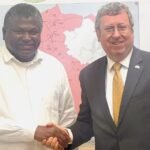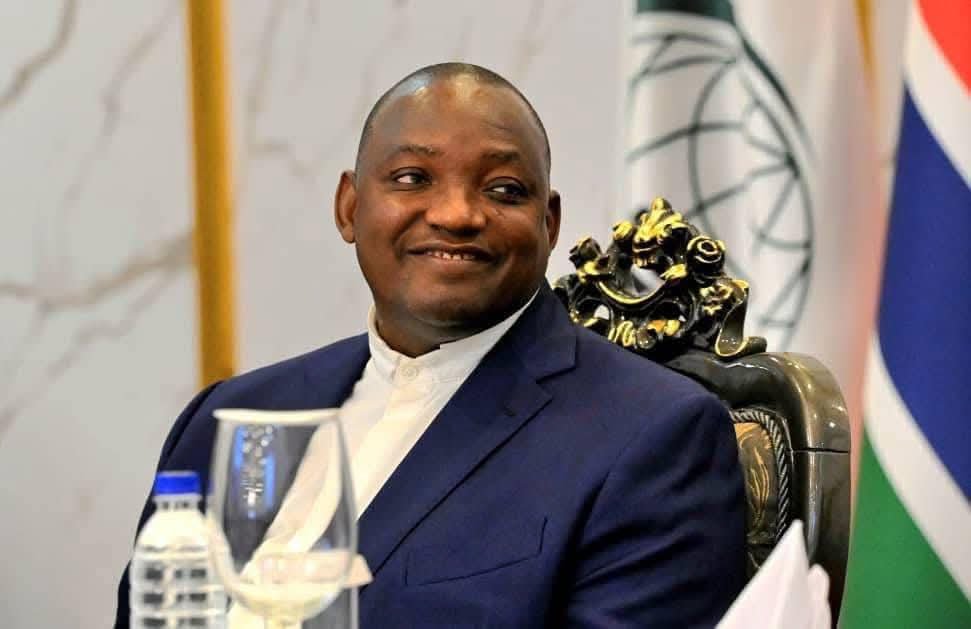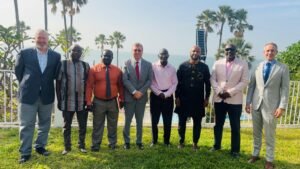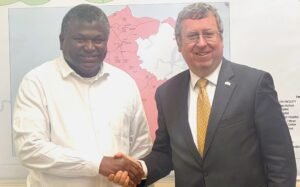By Basidia M Drammeh
In 2016, Adama Barrow, then a presidential candidate for the Coalition, campaigned on the promise of ending self-perpetuation in power and advocated for term limits to be enshrined in a new Constitution. He pledged to serve only three years, during which he would organize free and fair elections to usher in a Third Republic. However, as the third year approached, Barrow argued that he needed to complete his five-year constitutionally mandated term to finish his projects. Consequently, the government cracked down on the Three-Years Jotna movement, which had garnered support for a three-year mandate, leading to the group being outlawed.
In December 2019, Barrow established his own party to contest the 2021 elections, which he subsequently won. The Constitution intended to establish a new republic was ultimately defeated in Parliament, primarily by Barrow’s loyalists, who claimed it discriminated against him by counting his second term and disempowered the executive branch, which wields significant power under the existing 1997 Constitution—one that Jammeh manipulated to ensure his continued rule.
Recently, there has been much speculation about whether President Barrow will run in the next presidential election. This was fueled by a news story from *The Voice* newspaper suggesting that Barrow would choose prominent business tycoon Mohammad Jah as his successor. The story was met with discontent from the ruling National People’s Party, which issued a statement refuting the claim as baseless. Barrow further escalated the situation by having his lawyer file a lawsuit against the newspaper for spreading false information; these charges were later dropped after appeals to the president.
In an attempt to clarify his position, Barrow stated in a recent interview with QTV’s Alieu Ceesay that he intends to run for president in 2026. He claimed that while he wanted to relinquish power, the executive members of his party believed that his departure would jeopardize the party’s future.
It is unfortunate that the president attributed his change of heart to the pleas from his party rather than the greater interests of the nation. Barrow must recognize that the survival of some of those around him depends on his continued presidency, making their requests largely self-serving.
In my opinion, the president should not seek a third term; instead, he should introduce a new Constitution and oversee free and fair elections in which he will not participate. Doing so would allow him to set a legacy as the first Gambian leader to peacefully relinquish power and ensure a smooth transfer of authority. A recent survey by Afrobarometer indicated that at least 77% of the Gambian population believes the country is heading in the wrong direction. The opinions expressed by his party members should not outweigh those reflected in the survey. After all, The Gambia is larger than his party or its members. If Barrow decides not to run in the next election, he would have the opportunity to remain in The Gambia as a respected statesman, enjoying numerous benefits outlined in the Former Presidents Bill.
It is time for President Barrow to groom future leaders within his party who can manage its affairs after he steps down. It’s worth noting that Barrow has yet to pick a deputy party leader since the party’s inception five years ago.
Barrow has already made significant strides in nurturing democratic values, and his decision to refrain from seeking a third term would further strengthen Gambia’s democratic gains, positioning it as a model for stability in a turbulent region.











More Stories
Op-Ed: Before it was Memorial Day
Mayor Adams’ Community Op-Ed: Our Bodegas Were a Lifeline During COVID-19. Now, We Are Providing a Lifeline to Them
Community Op-Ed: Destroying Guns, Protecting Our City